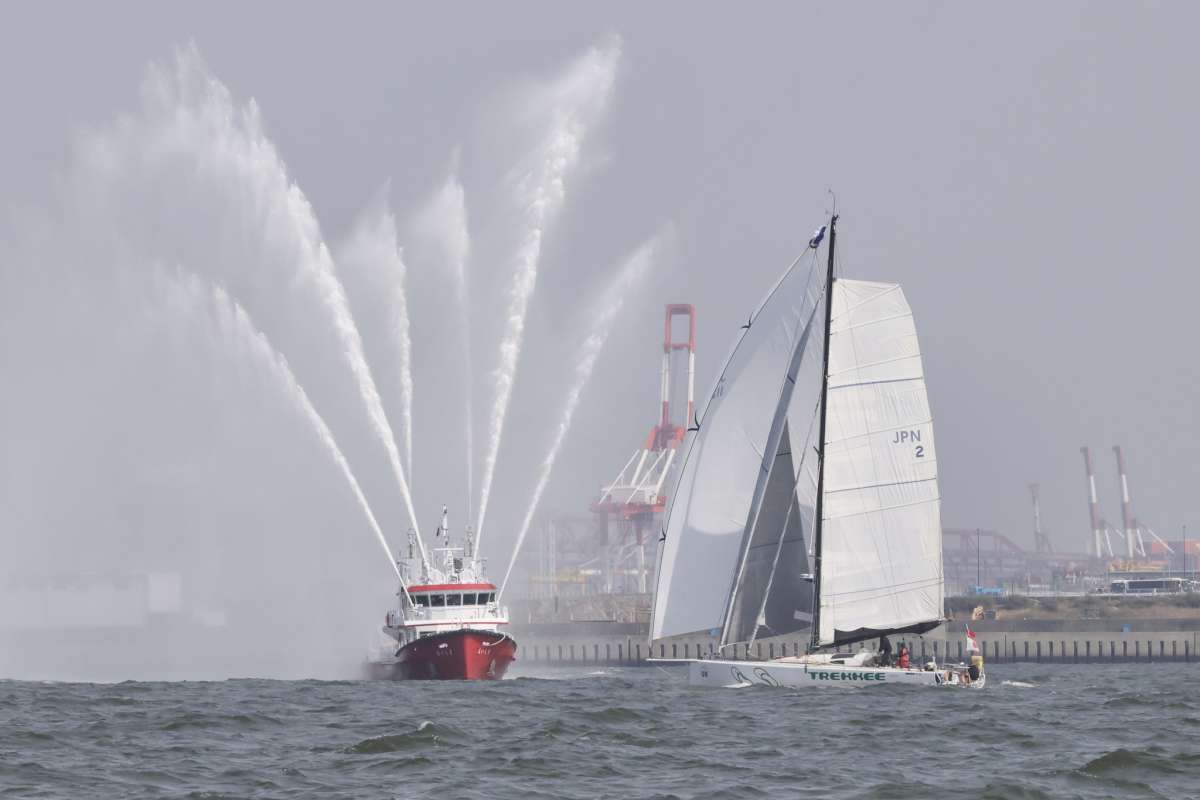The ISAF Sailing World Cup today announced a revised scoring system for the 2009-2010 season, which begins in Melbourne, Australia later this month.
The ISAF Sailing World Cup incorporates seven events across Australia, the USA, Spain, France, The Netherlands, Germany and Great Britain to form the definite series for Olympic and Paralympic sailors. Following its debut season in 2008-2009 – which featured over 2,000 sailors representing 65 nations – the World Cup returns to the same venues in 2009-2010 to build on its initial success.
Throughout its debut season the World Cup collected feedback from the sailors, event organizers, classes and ISAF's Member National Authorities on the series. Based upon this feedback, at the recent Annual Conference of the International Sailing Federation (ISAF) held in Korea during November, ISAF's Executive Committee approved the following recommendation to modify the World Cup scoring system for 2009-2010: “For the overall SWC series score five out of seven events will be counted; at least one of the discarded events shall be a European SWC event. The Top 20 scoring system used during the 2008-2009 SWC will remain the same for the 2009-2010 SWC.”
In line with the Executive Committee's recommendation, the scoring system for the 2009-2010 ISAF Sailing World Cup has today been announced and is reproduced in full at the end of this release.
Alastair Fox (GBR), ISAF Events Manager, said: “The revised scoring system for the ISAF Sailing World Cup has been introduced to make the competition for the World Cup titles fairer and closer. The feedback we received from sailors during the World Cup's debut season was overwhelming in support of the changes we have announced today. ISAF has also been working very hard behind the scenes to improve the consistency between the World Cup events and the overall media portfolio of the series. We're looking forward to a fantastic 2009-2010 season and watching the world's best Olympic and Paralympic sailors compete for the ISAF Sailing World Cup titles.”
The 2009-2010 ISAF Sailing World Cup series kicks off with Sail Melbourne in Australia starting 14 December 2009. Next stop is Miami, USA for US SAILING's Rolex Miami OCR in January followed by quintet of European events: the Trofeo SAR Princesa Sofia MAPFRE in Palma, Spain; Semaine Olympique Francaise in Hyeres, France; the Delta Lloyd Regatta in Medemblik, The Netherlands; Kieler Woche in Kiel, Germany; and finally the Skandia Sail for Gold Regatta at the 2012 Olympic sailing venue at Weymouth, Great Britain.
2009-2010 ISAF Sailing World Cup – Scoring System
The ISAF Sailing World Cup 2009-2010 incorporates seven events. Sailors can score points at each event to count towards their ISAF Sailing World Cup series score.
At each event, only the 20 boats ranked highest in the overall ranking of the event will be scored. The boat finishing in first place will be scored 20 points, second place will be scored 19 points, third place 20 points and so on through to 1 point for a twentieth place finish. A boat finishing in twenty-first place or worse is scored 0 points. A boat which does not compete in an event is not awarded a score.
The ISAF Sailing World Cup series score for a boat will be the total of its event scores excluding two events according to the following criteria:
a. After three events, a boat's worst event is excluded
b. After six events, a boat's worst European event* and its remaining worst event are excluded.
If a boat has two or more equal worst scores, the score(s) for the event(s) sailed earliest shall be excluded.
*The European events are:
Trofeo SAR Princess Sofia MAPFRE – Palma de Majorca, ESP
Semaine Olympique Francaise – Hyeres, FRA
Delta Lloyd Regatta – Medemblik, NED
Kieler Woche – Kiel, GER
Skandia Sail For Gold Regatta – Weymouth & Portland, GBR
Breaking Ties
If there is a series score tie between two or more boats, each boat's event scores (ie. E1, E2, E3 etc) shall be listed in order of best to worst, and at the first point(s) where there is a difference, the tie shall be broken in favour of the boat(s) with the best (i.e. highest) score. No excluded scores shall be used.
If a tie remains between two or more skippers, they shall be ranked in order of their event score in the last event. Any remaining ties shall be broken by using the tied skippers' scores in the next-to-last event and so on. These scores shall be used even if some of them are excluded scores.























